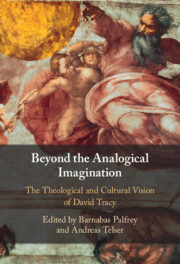This article analyses the Catholic view of religions by examining its beginnings as a theology of salvation for non-believers summarised by the aphorism extra ecclesiam nulla salus. It notes that Catholic attempts to examine the capacity of religions per se in attaining salvation for their followers took place in the period before and during Vatican II when the church began assessing the non-Christian person not just as an isolated individual but also by taking into account her wider affiliations to a religious community. This analysis has revealed there were hermeneutical tensions within the church about whether the Council signified greater continuity or discontinuity with tradition, and consequently, similarly contrasting views about the extent to which it was willing to see other religions as holding salvific function to any extent. The survey has concluded that ultimately the Council chose to leave this question of the salvific function of other faiths open for further investigation, even though it displayed an unprecedented positive appreciation of them, contra some observers who have argued the church recognised the possibility of salvation for non-Christians through their own faiths. Nevertheless, the Second Vatican Council did affirm the significance of other religions as a preparation for the Gospel, as well as showed a movement beyond the pre-Conciliar notion of extra ecclesiam by granting the possibility of salvation for non-Christians, particularly those who are invincibly ignorant and who had striven to live an upright life by observing natural law. This implies that the next theological question on the agenda could be on the role and functions of these religions; i.e. are those people who are reckoned to be saved, saved through or despite their religions, and how is this salvation related to the church or to the work of Christ or both? Thus, the analysis provided in this theological-historical survey will serve to provide the backdrop for further discussions on post Conciliar developments within the Catholic theology of religions. Finally, an understanding of Catholic views towards other religions will also be illuminative for Protestantism as it seeks to advance its own theological understanding of world religions.


